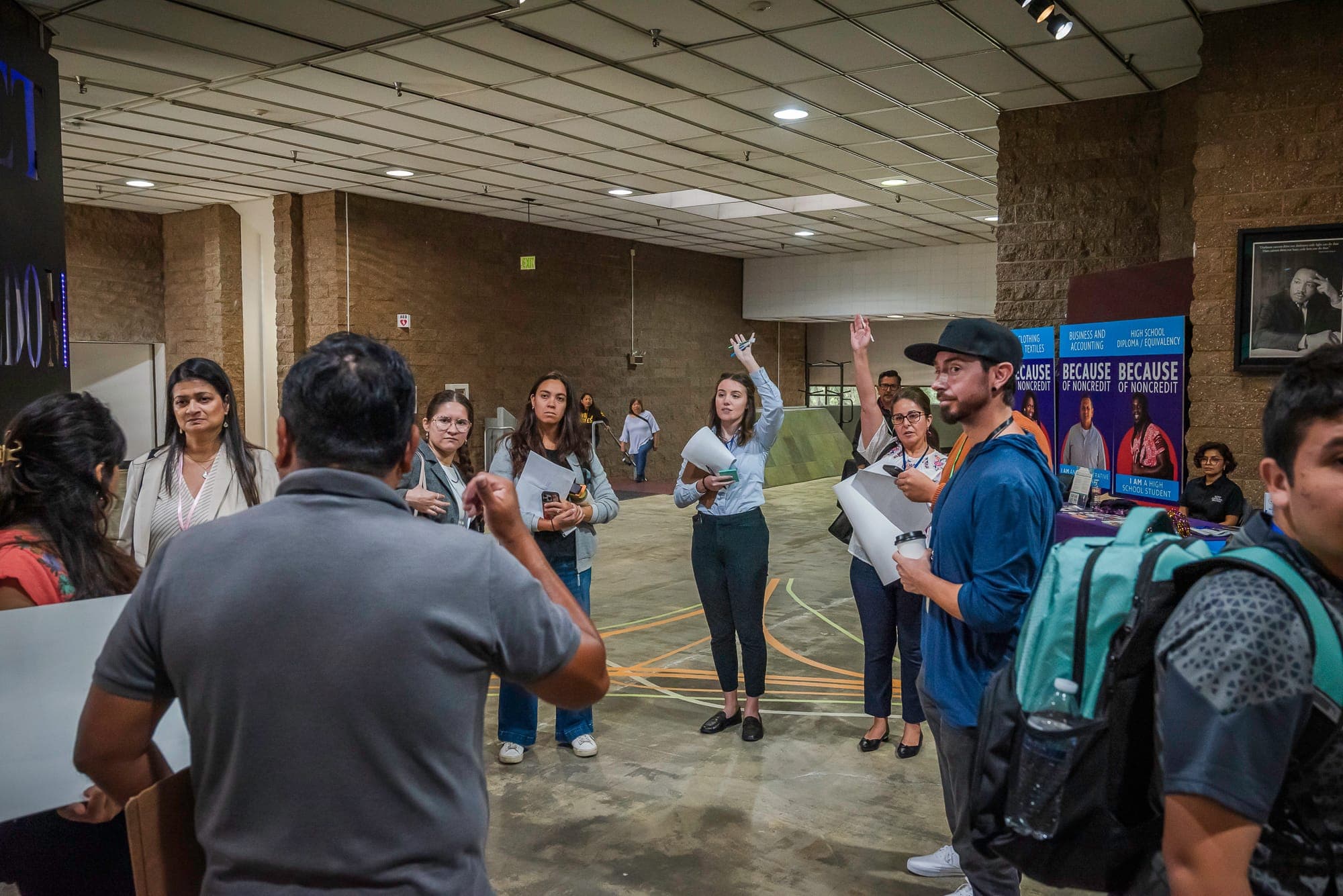
News
By Zach Smith, October 3, 2012
In this issue:
- Federal Policy Update
- Smart Growth America is accepting applications for communities interested in free technical assistance - applications due Oct. 25
- LOCUS: Responsible Real Estate Developers and Investors is hosting two recruitment events this fall
- Transportation for America is holding two workshops on federal transit finance
- New Jersey Future releases new report "Targeting Transit: Assessing Development Around New Jersey's Transit Stations"
- New Walk Score app: Another step forward for walkability
- The Mayor's Innovation Project has released a new online resource, ALICE, categorizing major state and local policies
- Submit your nominations for the 2013 Rudy Bruner Award for Urban Excellence - Nominations due Dec. 10
- Save the date - New Partners for Smart Growth Conference February 7-9, 2013
Federal Policy Update
On September 28, the President signed into law a six-month continuing budget resolution to fund the federal government until March 23, 2013. The stopgap funding measure will set government spending at $1.047 trillion, as established by the Budget Control Act of 2011. The $1.047 trillion funding level represents a slight 0.6 percent across-the-board increase over FY 2012 spending levels.
After clearing the legislation before the end of September for the President's approval, Congress went into recess until after the November elections. When Congress returns after the election, they must address the looming fiscal cliff at the end of the calendar year. The fiscal cliff is the combination of the deep automatic spending cuts and higher tax rates set to go into effect at the beginning of next year. It is not clear yet if Congress will reach a compromise to address the looming fiscal cliff during the post election session or if they will punt the decision until next year.
Smart Growth America is accepting applications for communities interested in free technical assistance - applications due Oct. 25
Smart Growth America is now accepting applications until October 25th for a series of free technical assistance workshops for local communities interested in smart growth strategies. This technical assistance is funded by the U.S. EPA’s Office of Sustainable Communities under its Building Blocks for Sustainable Communities Program. The Building Blocks program funds quick, targeted assistance to communities that face common development problems. Three other nonprofit organizations—Forterra, Global Green USA and Project for Public Spaces—also received competitively awarded grants under this program.
Communities interested in this free-of-charge technical assistance can click here to learn more about this exciting opportunity. Full application guidelines as well as a digital application form are available.
LOCUS: Responsible Real Estate Developers and Investors is hosting two recruitment events this fall
LOCUS: Responsible Real Estate Developers and Investors is hosting two recruitment events this fall at Rail~volution (Oct. 15) and the Urban Land Institute Fall Meeting (Oct. 16). If you know of any smart growth real estate developers who would like to attend, please contact Zach Smith via email or phone at 202-207-3355 ext. 115.
Transportation for America is holding two workshops on federal transit financing
With local sponsors, Transportation for America is holding workshops on federal transit financing in a post-earmark era, bringing together high level officials from the U.S. Department of Transportation, national transportation financing experts, and leaders from other regions with transit success stories. Workshops will be held in Seattle, WA (October 4th) and Nashville, TN (October 11th) and SGA coalition partners are encouraged to participate and extend invitations. Please contact Rochelle Carpenter with Transportation for America for more information via email or phone: 202-955-5543 x224.
New Jersey Future releases new report "Targeting Transit: Assessing Development Around New Jersey's Transit Stations"
New Jersey Future announced it has assembled a comprehensive database of development-related statistics for the state's 243 transit stations and their surrounding neighborhoods. Searchable by data element, by station or municipality, or by ranking, the database is intended to provide policy makers, municipal officials and development professionals with a straightforward way to identify the highest-potential opportunities for various kinds of development around transit stations.
The accompanying report, Targeting Transit: Assessing Development Around New Jersey's Transit Stations, written by New Jersey Future Research Director Tim Evans, describes the data included in the database, what it reveals about development patterns near the state's train and bus stations, and how it might be used in the decision-making process. For questions about the report, contact Elaine Clisham, director of communications via email
New Walk Score app: Another step forward for walkability
Walk Score has added an interactive feature on their popular iPhone app and website that allows you to upload photos of “neighborhoods gems” and “problem spots”. Others can then comment and vote them, and the app maps the highest-rated additions onto the virtual tour.
Transportation for America has written a blog post explaining the new application.
The Mayor's Innovation Project has released a new online resource, ALICE, categorizing major state and local policies
The American Legislative and Issue Campaign Exchange, or ALICE, is a one-stop, web-based, public library of progressive law on a wide range of issues in state and local policy. As the name may suggest, ALICE is similar to to ALEC (American Legislative Exchange Council), the corporate-backed group that has for nearly 40 years provided model state law and connection to corporate lobbyists to its nearly 2,000 state legislator members.
You’ll find hundreds of examples of “exemplary” laws sorted by major conventional categories of state and local policy, meaning laws that have been introduced or enacted somewhere and worthy of replication. There are a smaller number of “model” laws, or suggested general language for a law, ready to be tailored to a particular jurisdiction. And there are different kinds of “support” for both, meaning background research, talking points, and other aids in their effective communication.
Click here to learn more about ALICE.
Submit your nominations for the 2013 Rudy Bruner Award for Urban Excellence - Nominations are due Dec. 10
An excellent urban place involves the interplay of process, place and values. Processes may be inclusive, innovative or participatory. Places may be grandiose or modest; new or historic, but must be well designed, and must demonstrate positive contributions to their neighborhoods and cities. Values guide the inevitable tradeoffs involved in bringing a project to life. The Rudy Bruner Award seeks to illuminate the complex process of urban placemaking, so that it may be strengthened to better reflect the balance between form and use, opportunity and cost, and preservation and change.
Established in 1987, the Rudy Bruner Award seeks to promote fresh and innovative thinking about cities, and to encourage us all to demand excellence in our urban environments. The Award is distinguished from other award programs by its broad eligibility criteria, the multi-disciplinary Selection Committee, and the detailed on-site evaluation of each finalist. Each award cycle is documented in in-depth case studies of the winners, and in a distillation of the Selection Committee discussions.
The Rudy Bruner Award for Urban Excellence is given to five winning projects in each biennial award cycle.
- One Gold Medal Winner receives $50,000.
- Four Silver Medal Winners are awarded $10,000 each.
- The winning projects may use prize money in any way that benefits the project.
- All winners are promoted by the Bruner Foundation and are included in a book published by the Foundation.
- All winners will be featured in award ceremonies and in a media outreach effort.
Learn more about the Rudy Bruner Award and how to apply.
Save the date - New Partners for Smart Growth Conference February 7-9, 2013
This year, the New Partners Conference makes its way to America’s heartland—Kansas City, Missouri. The program will span three full days with optional pre-conference events scheduled for Wednesday, February 6th and post-conference events scheduled for Sunday February 10th. The main program will kick off on Thursday morning, February 7th, and continue through Saturday afternoon. The schedule includes a dynamic mix of plenaries, breakouts, implementation workshops, specialized trainings, peer-to-peer learning opportunities, and coordinated networking activities. It will also feature exciting tours of local model projects in and around the greater Kansas City region. Learn more on the New Partners website.
Related News

© 2026 Smart Growth America. All rights reserved
Site By3Lane Marketing








